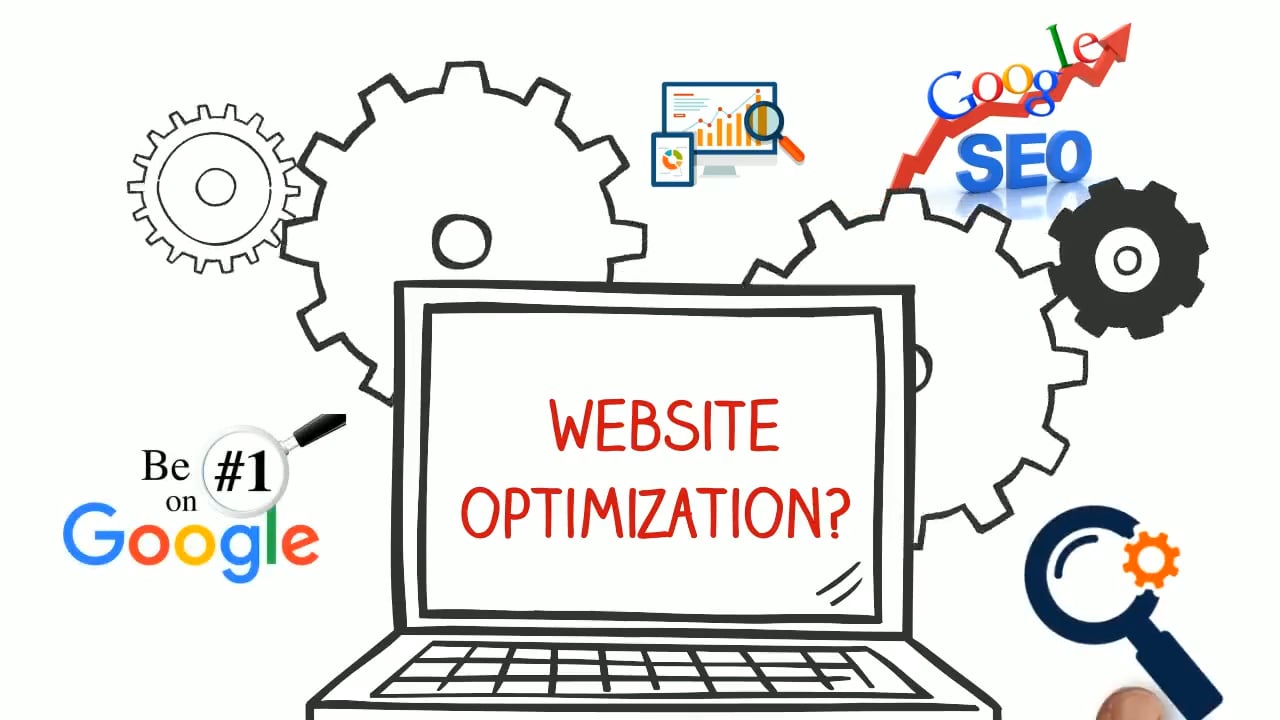Tech
Tips for Website Optimization For 2024

A website is like a 24/7 sales representative for your company, but if it isn’t optimized, it could be quickly demoted and end up hidden at the bottom of search results when prospective customers try to use your services or purchase a product. But, search engines like Google can elevate you to the top and attract users who will find your website enjoyable if you optimize it well. Additionally, they will find what they need and purchase from you. Let’s examine some strategies you can use to achieve your goals.
Why Is Website Optimization Important?
It is easier for potential customers to find you when your website is optimized. If your website has well-thought-out content and a well-organized structure, search engines will be more inclined to direct visitors looking for information about your sector or services toward you. When you have relevant and high-quality content on your website, users will be able to solve problems and establish your brand as an authority. Their seamless navigation of your website also raises the likelihood that prospective buyers will become loyal repeat customers.
Tips for Website Optimization
User experience (UX), customer conversion, and search engine optimization (SEO) are the three main focuses of web optimization.
Website Optimization for SEO
Numerous SEO statistics demonstrate the importance of search engine optimizing your website. Here’s how to use SEO strategies to set up your website for success.
- Invest in an SEO Audit
Get an SEO audit to find out the current state of your website before you optimize it. To ensure that search engines can easily crawl your website, an SEO audit examines every aspect of the site, including the content, backlinks, indexing, loading speed, broken links, and status code errors. Your adherence to Google’s E-E-A-T (experience, expertise, authoritativeness, and trustworthiness) guidelines is also revealed by an SEO audit analysis. For performing SEO audits, Google Analytics and Search Console are excellent resources.
- Make Your Website’s Structure Better To make it easier for search engines to find your content, make improvements to your website’s structure, and address any technical SEO issues. Search engines crawl your website to include your pages in search results. Take these actions:
- Organize your website using the structured data technique so that search engines can understand it.
- Make sure the structure of your URLs is consistent.
- Create a sitemap using XML, or Extensible Markup Language.
- On your website, fix broken links and get rid of duplicate content.
- Submitting your website to search engines can improve its crawlability, particularly after making changes to its pages.
- Schema.org can help you optimize the structure of your website.
- Adopt a Content Marketing
Planning, producing, and disseminating search engine-optimized content that informs readers about your goods, services, or sector is known as content marketing. Use it as follows to make your website more optimized:
- Connect your website to social media sites, share content there, and point visitors to your website’s blog posts.
- To persuade visitors to make a purchase, create landing pages with explicit value propositions and prominent calls-to-action (CTAs).
- Establish a blog and publish content frequently to educate readers about market trends, new releases, and usage instructions for your goods and services. Add pertinent keywords to draw in more possible clients.
- Distribute regular updates about your product, service, or industry to your customers and subscribers. For this, there are numerous email marketing programs available.
- Optimize On-Page Content
Approximately 99,000 search queries are made on Google every second, for a daily total of 8.5 billion searches. If your website isn’t set up for natural Google search, you’ll fall behind. Here are a few strategies for improving the content on your pages:
- Consistently write blog entries containing current, pertinent information about your business, product, or service, and use blog SEO techniques that increase conversions.
- Include pertinent keywords in the body of blog posts or landing pages as well as in headings and alternative text.
- For every page and blog post, add header tags, meta titles, and descriptions.
- Enhance your pages with valuable images and links, both internal and external.
- Optimizing your web pages is possible with the use of SEO tools like Yoast.
- Perform Keyword Research
Researching keywords is an essential component of SEO marketing. To rank higher on search engine results, find relevant keywords that your target customers are actively searching for and incorporate them into your website. Effective keyword research tools include Google Trends and Keyword Planner.
- Establish Internal Linking
Create links between pages on your website to facilitate navigation for both search engines and visitors. To assist visitors in navigating your website, you can also include links or a navigation menu in the footer.
- Build Backlinks
The organic traffic to your website will rise when it receives backlinks from other high-quality websites because Google will see these as credible references to your website. To get other websites to link to your content, produce content that is worthy of sharing. Even so, a single high-quality backlink is still preferable to multiple low-quality ones, so look for backlinks from reliable websites. Avoid purchasing backlinks as well, as Google penalizes websites that do so in violation of its Webmaster Guidelines. You can monitor backlink status and control link attributes using SEO tools like Moz Pro, Ahrefs, and Semrush.
- Examine Your Competition
Learn about the SEO strategies used by your rivals. Tools like Semrush look at the rankings of competitor keywords and the amount of organic traffic that comes after particular keywords. Understanding these metrics will help you approach SEO in a way that maintains your parity with rivals. It also aids in finding chances for your brand to stand out and surpass competitors.
- Revise Previous Content
Pages and posts on websites can perform poorly or age out of date over time. Through consistent analysis and updating of such content, you can optimize your website. Determine the areas with declining traffic, then update the content according to the most recent search engine guidelines or regular updates.
UX-focused website optimization
User experience describes how visitors engage with your website, which frequently provides them with a preview of what using your service or product would entail.
- Implement UX Web Design Practices
It takes users 0.05 seconds to form an opinion about your website, so you need to design it so that first-time visitors can easily become repeat customers. A few guidelines for web design are as follows:
- To make it easier for visitors to locate your main pages, include simple menus in the header and footer of your website.
- Make sure that CTA buttons, like “Start a free trial” and “Buy Now,” are prominently displayed so that users can find them easily.
- Include conversion steps in the sales funnel, like a how-to manual for joining your program, to improve it.
- Boost Site Speed
If your website takes too long to load, 53% of visitors who are using mobile devices will leave, according to Google. Furthermore, Google uses page speed as one of its ranking factors, so a slow-loading website may suffer from penalties. To load pages more quickly:
- Eliminate extraneous characters, like a lot of spaces between sentences.
- By using static content replication, you can enhance the performance of your website by setting up a content delivery network (CDN) with a hosting company like Hostinger.
- To fix static pages, use plugins or software.
- Utilize only top-notch imagery, and make sure your pictures are optimized to meet the needs of your website.
- You can get useful information about how quickly your website loads on different devices and what you can do to speed up the loading of your website pages by using tools like PageSpeed Insights and GTmetrix.
- Prioritize Mobile Responsiveness
As per Statista, 58% of website traffic worldwide in 2023 came from mobile devices. Google employs a mobile-first strategy, indexing content from mobile versions of websites to determine their placement in search engine result pages (SERPs). For this reason, you should adjust your website for all devices, including tablets and smartphones, by using the mobile SEO advice provided below:
- When creating a website, choose a theme that adapts the layout and appearance of your site to different screen sizes.
- Provide simple navigation by employing drop-down menus that are simple for mobile users to navigate and by making the search box prominently visible.
- Use of short meta titles that briefly describe the content of a page.
- Put CTA buttons in places where they are simple to locate and touch on a mobile device.
- You can create mobile-responsive websites with any of the top website builders or software platforms.
- Personalize Your Website
Offering a customized experience encourages visitors to stay on your website, even though a strong structure and content can draw in new business. Use geotargeting to incorporate personalized features, like behavior-based product recommendations and targeted offers, into the design of your small business website. It will assist you in providing content that suits the individual needs of users.
- Provide Accessibility for Your Website
Ensure that everyone visiting your website, including those with particular disabilities, can easily read it using assistive technologies like screen readers. Best practices for web accessibility include:
- Including headings on pages to provide context for their contents.
- Consider using Google’s image SEO guidelines and add alternative text to your images.
- Make your website readable for people who are colorblind by using the 4:5:1 color contrast ratio.
- adding captions to videos or audio to help explain your content.
- Make your website as accessible as possible by using programs like Happy Scribe and VEED.
Website Optimization for Conversions
Optimize your website to increase the number of visitors who become devoted patrons, in addition to increasing website traffic. By taking the actions listed below, you can maximize the amount of traffic to your website.
- Understand Your Target Market
Begin your web optimization process by responding to these inquiries in order to increase conversions:
- Who are the ideal clients for you?
- What makes them require your product?
- Do they now use a product made by a competitor?
- What is the amount of money they pay your rivals?
- What problems does their present purchase still need to fix?
Providing precise answers to these queries and utilizing resources like Google Analytics can assist you in developing reader or buyer personas.
- Analyze User Behavior
Monitoring how users interact with your website is the next step. You can get a comprehensive understanding of how users interact with each page of your website by using tools like Google Analytics, Google Search Console, and the heatmap generator provided by VWO. It will allow you to observe how they enter your sales funnel, how they use your website, which pages get clicked on and which have a higher bounce rate. List the requirements that customers have at each stage and include relevant keywords and content.
- Customize Copy for Websites
The content of your website is very important. A company once changed its headline by one word, and the result was a nearly 90% increase in conversion. Make sure every webpage offers a path to conversion by producing content that is both search engine crawlable and informative for users. Here are some recommended practices for copywriting:
- Address the issues that your customers are facing with your headlines.
- Emphasize the advantages of your good or service rather than just its features.
- To condense the selling points of your brand, use bullet points.
- Make direct eye contact with the reader by addressing them as “you” or “your.”
- Make your copy clear and concise by editing it.
- Place CTA buttons that are obvious on landing pages.
- To Build Trust, Use Social Proof
Examine consumer reviews to learn about their experience using your product, determine what features need to be updated, and what new features should be added. Next, leverage gratifying client testimonials to gain new customers’ trust. On your website, feature their case studies and testimonials so that prospective clients can see how you can assist them.
- Evaluate and Track Website Performance
It takes routine observation to optimize a website effectively. Measure CTA button clicks, trial signups, and email subscriptions in addition to sales tracking. By dividing the total number of conversions by the total number of website visitors, you can find your conversion rate. The outcome shows how well your website is performing and helps you assess where you are and whether you should keep going in the same direction or take a different approach.
Extra Expert Tips for Enhancing Your Website
Three website optimization tips that the majority of business owners overlook when it comes to web optimization were highlighted by the expert sources we spoke with.
- Before making changes, make a backup of your website using A/B testing tools or the WordPress UpdraftPlus plugin to guard against losses due to plugin malfunctions, hosting issues, hard drive crashes, or inadvertent deletion.
- To find out which user experience tactics, search engine optimization methods, or conversion phases are most effective for your customer journey, test and conduct experiments on your website using A/B testing and multivariate testing tools.
- Learn about the pertinent updates. Search engines, for instance, frequently update their algorithms. Google has finished thirty-six significant algorithm updates in the last five years. Hiring experts in SEO, UX, and content marketing is an additional option.
Conclusion
Website optimization is essential if you want to differentiate yourself from rival businesses. Keep in mind that the content and structure of your website have an impact on search engine rankings as well as the general user experience. By implementing the advice we’ve given you, you’ll be better positioned to optimize your website for conversion and retention of customers.
-

 Business2 weeks ago
Business2 weeks agoNayef Doleh Examines International Humanitarian Fundraising Strategies
-

 Business3 weeks ago
Business3 weeks agoHow Black Banx is Redefining Global Banking Strategies in 2025
-

 Business2 weeks ago
Business2 weeks agoHow to fill MSME Form 1? Step-by-Step Guide
-

 Tech4 weeks ago
Tech4 weeks agoHow to Switch Between Microsoft Teams and Skype, How To Export Messages, Files, and Contacts from Skype Before It Shutting Down
-

 Tech3 weeks ago
Tech3 weeks agoMicrosoft Teams to End SMS Messaging Feature Support for Android Phones and Switch to Phone Link App as Alternative
-

 Business4 weeks ago
Business4 weeks agoPurpose of the AIRdiamond Project
-

 Education3 weeks ago
Education3 weeks agoSchool Of Odd Thinkers – Think Odd, Learn a lot, and Earn a lot
-

 Startup4 weeks ago
Startup4 weeks agoFrom Trends to Sales: How Small Businesses Can Capitalize and Maximum Reach on Social Media





















